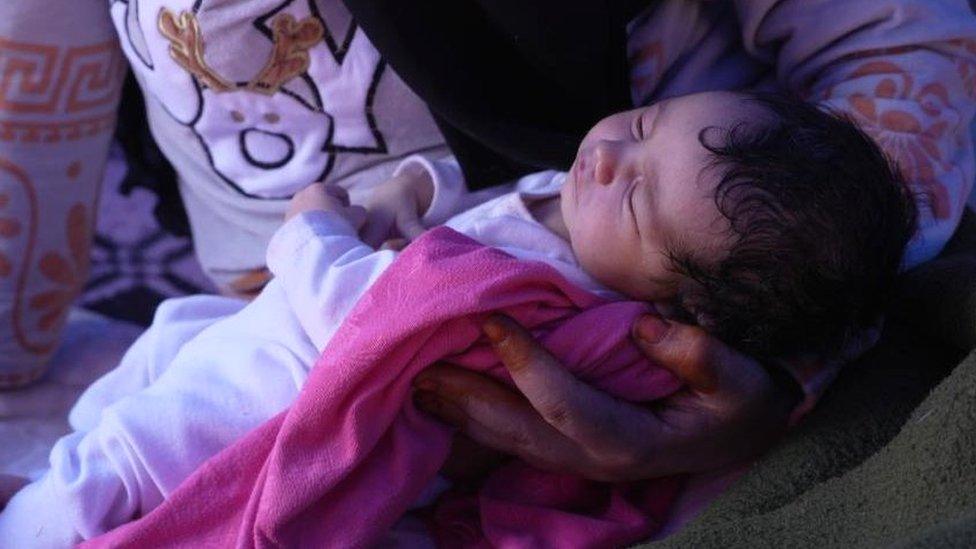Morocco earthquake: Before and after pictures show devastation
- Published
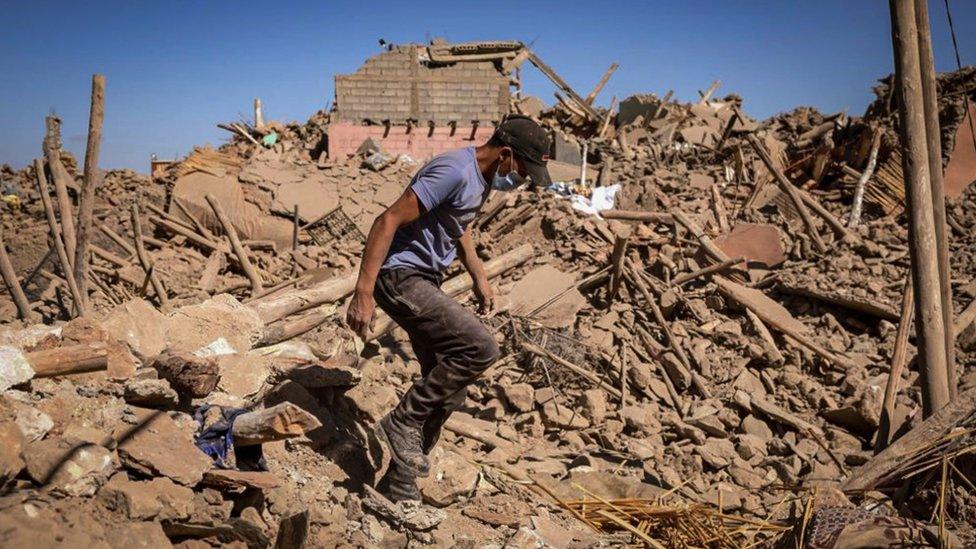
New satellite photos have revealed the devastating impact of Friday's earthquake on rural communities in Morocco.
The epicentre of the tremor was in the High Atlas Mountains, 71km (44 miles) from Marrakesh, and many of the worst affected areas are remote villages and towns.
Images of the village of Tafeghaghte taken after the quake hit show that nearly every building in the village was flattened, with only a few still standing.
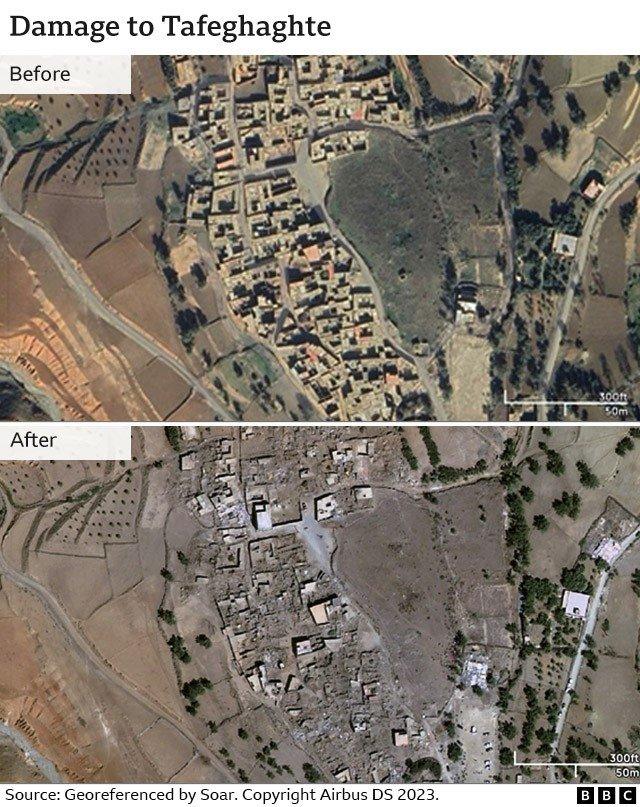
It is around 60km (37 miles) from Marrakesh and, like many of the areas which have been badly affected, is accessible only by a narrow, dusty track.
Of the roughly 200 people who lived there, more than 90 have been confirmed dead, and many more are missing.
Some families have lost seven members.
Days after the earthquake struck local people were still complaining that the only aid they had received was food and water brought by civilian volunteers, and they had spent three nights sleeping out in the open.
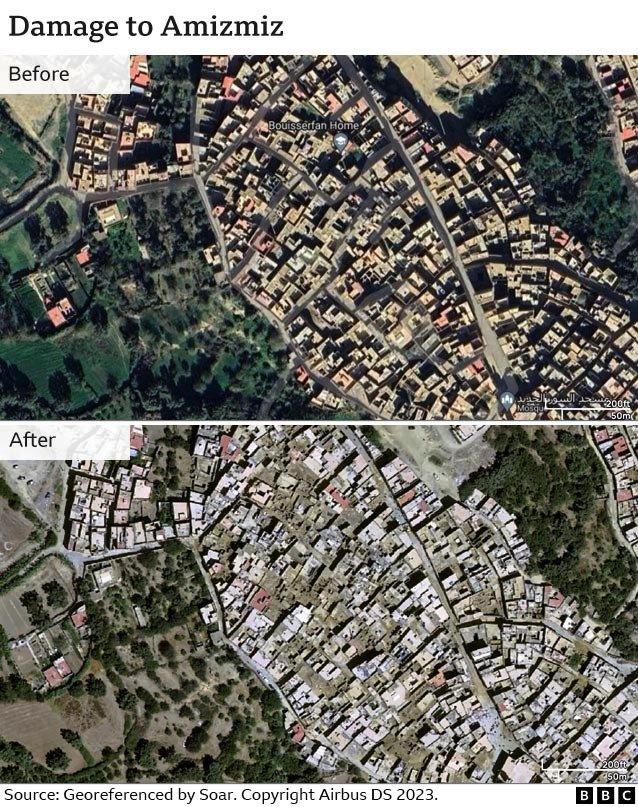
The devastation is similar in the nearby small town of Amizmiz, which is 3.3km (2 miles) to the north-west of Tafeghaghte.
Satellite images show that in one area nearly half of the buildings appear to have completely collapsed.
On Tuesday, Noureddine Bo Ikerouane told the Reuters news agency: "We just need a tent, we have been given blankets."
"I am afraid to go home as it may collapse because of the cracks," the carpenter who lives in the town added.
He was camping with his wife, mother-in-law and two sons in a makeshift tent made from blankets.
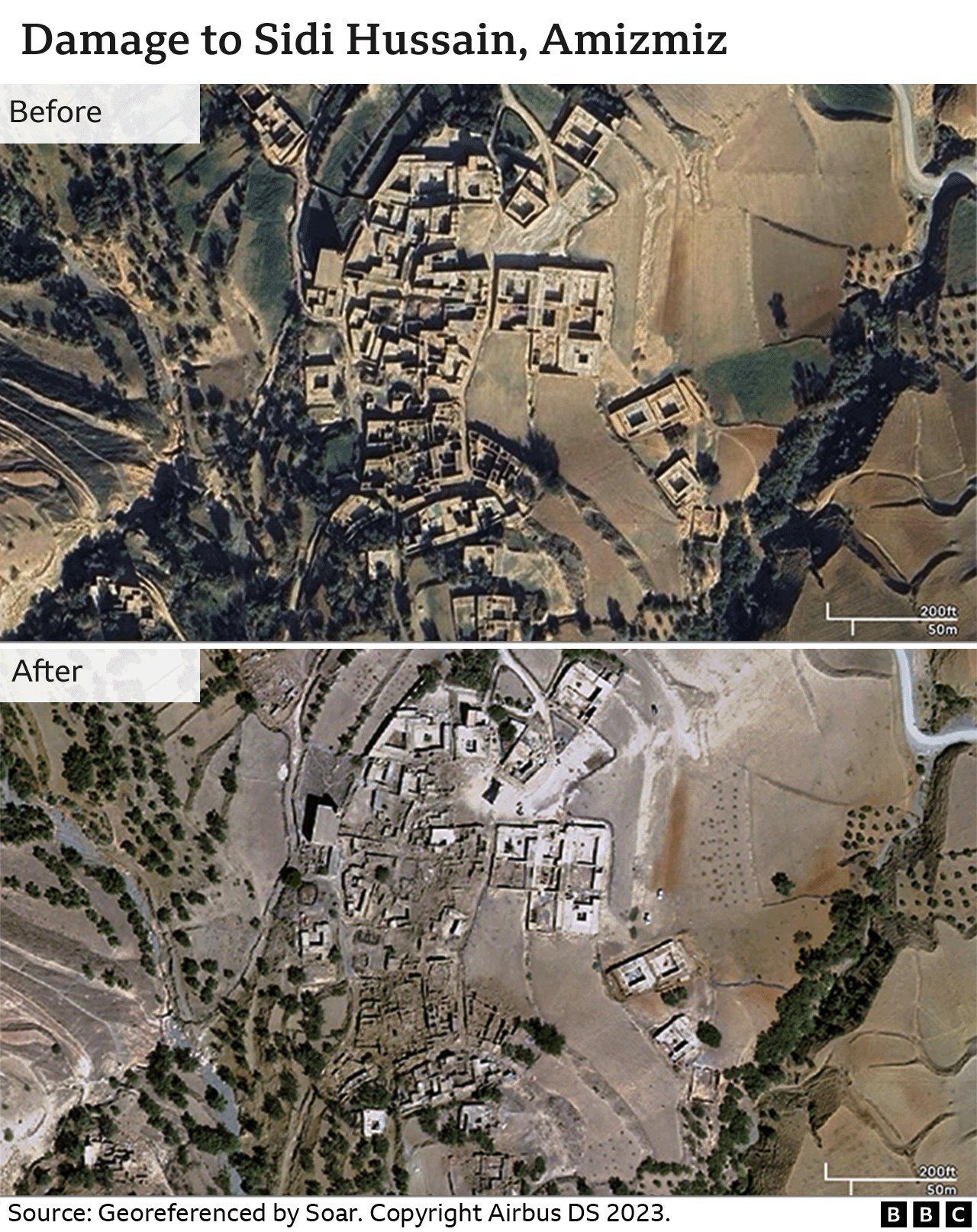
"Our money, our furniture, everything was destroyed. We didn't manage to save anything," said Malika Ouabella, also sheltering nearby.
Although emergency rescue teams from Spain, Britain and Qatar were already helping Morocco's search teams, other countries who had offered help - Italy, Belgium, France and Germany - said the Moroccan government had not yet accepted their proposal.
It is feared that time is running out to save any survivors, as houses in these mountain villages are typically made of mud bricks which crumble into fine rubble and do not tend to leave life-saving air pockets.
More than 150 people are reported to have died in the town.
Video: Inside Moroccan village with a population nearly halved by earthquake
Related topics
- Published11 September 2023
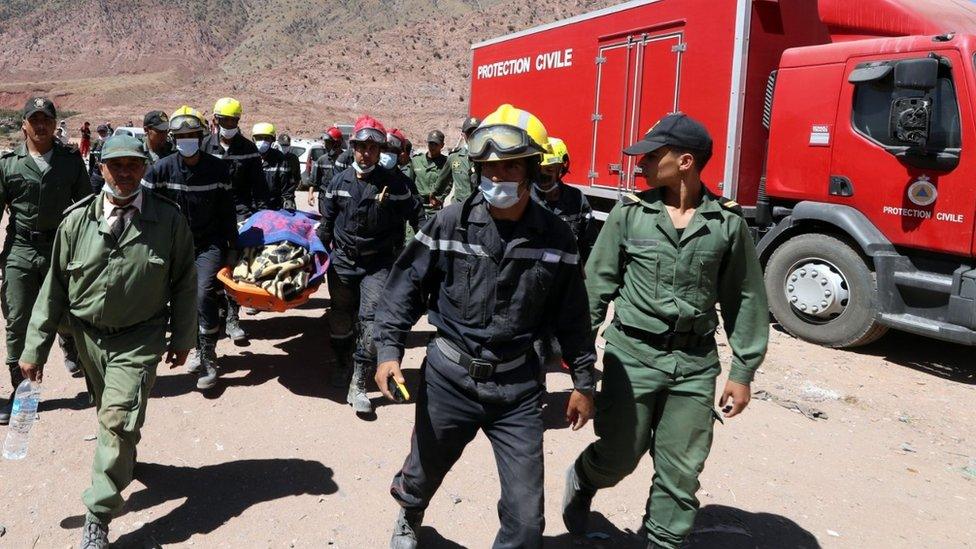
- Published10 September 2023
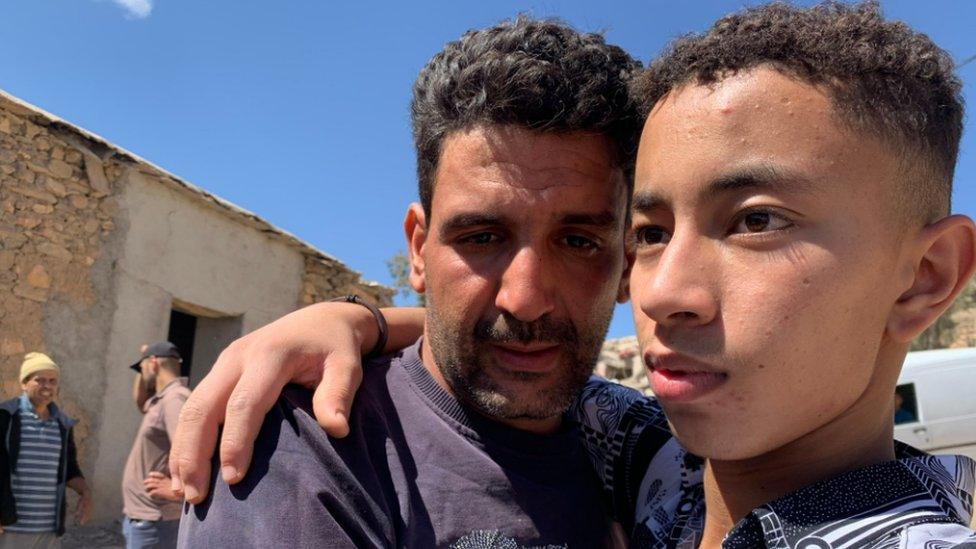
- Published10 September 2023
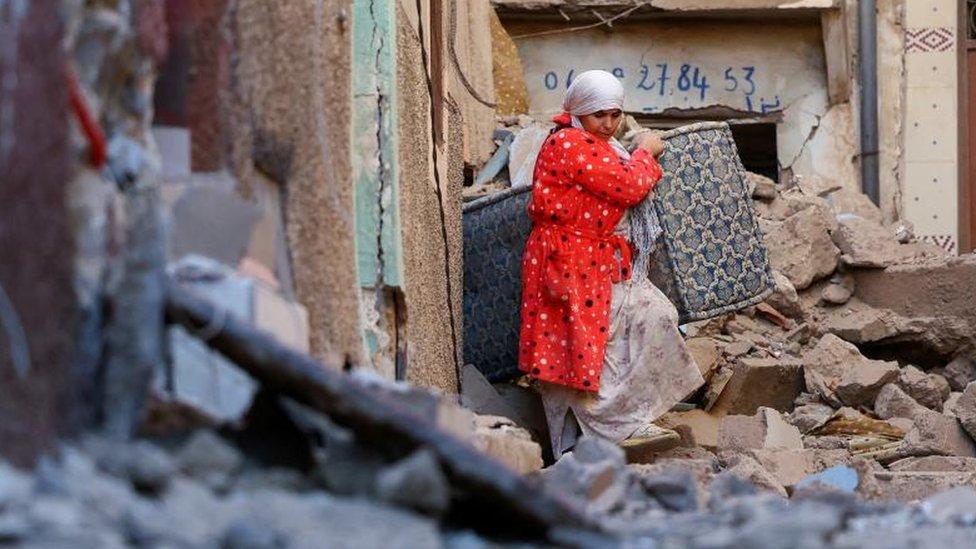
- Published11 September 2023
